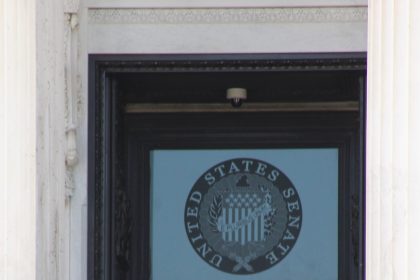Senate Punts Vote on Same-Sex Marriage Bill

WASHINGTON — Married same-sex couples who fear the U.S. Supreme Court could void their right to be married the same way it voided a woman’s right to have an abortion will have to wait a little longer for peace of mind from the U.S. Senate.
On Thursday Senate negotiators working on amendments to the Respect for Marriage Act announced they’re nowhere close to a deal that would allow the bill to overcome a Republican filibuster.
The vote, which many believed could happen as soon as Monday, now won’t be held until sometime after the November midterm election.
In a written statement, Justin Goodman, a spokesman for Senate Majority Leader Chuck Schumer, D-N.Y., said the leader “is extremely disappointed that there aren’t 10 Republicans in the Senate willing to vote yes on marriage equality legislation at this time.”
“Because Leader Schumer’s main objective is to pass this important legislation, he will adhere to the bipartisan group of senators’ request to delay floor action, and he is 100% committed to holding a vote on the legislation this year before Justice [Clarence] Thomas has a chance to make good on his threat to overturn Obergefell,” Goodman said.
“Just like he has persisted for the last two years on legislation that no one thought could pass, Leader Schumer will not give up and will hold the bipartisan group to their promise that the votes to pass this marriage equality legislation will be there after the election,” the spokesman said.
In June, Justice Clarence Thomas horrified the LGBTQ community when he suggested, in his concurring opinion in Dobbs v. Jackson Women’s Health Organization, that many other “rights” conferred by the high court were essentially made up and should be reconsidered.
Dobbs, of course, is the landmark decision in which a majority of justices held the U.S. Constitution does not confer a right to abortion.
In his concurrence, Thomas expressed the view that the court “should reconsider” its past rulings codifying rights to contraception access, same-sex relationships and same-sex marriage as well.
“In future cases, we should reconsider all of this court’s substantive due process precedents, including Griswold, Lawrence and Obergefell. Because any substantive due process decision is ‘demonstrably erroneous,’ we have a duty to ‘correct the error’ established in those precedents,” he wrote.
In response, and with significant bipartisan support, the House overwhelmingly passed the Respect for Marriage Act in July.
The bill would make marriage a constitutional right regardless of a couple’s sex, race, ethnicity or national origin.
But Thursday morning, Sen. Roy Blunt, R-Mo., considered by many a key vote, told reporters on Capitol Hill that the bill would be much more likely to get the 10 critical Republican votes it needs to overcome a filibuster if it were considered after Election Day.
Sen. Tammy Baldwin, D-Wis., the lead Democratic negotiator for the bill, later informed Schumer there was no choice but to delay the bill.
The decision comes against the backdrop of a new poll, released Wednesday, that shows three in five Americans support a federal law protecting the right to same-sex marriage.
The Morning Consult-Politico poll found that 59% of voters surveyed support Congress codifying same-sex marriage rights with a federal law, with 42% expressing strong support.
Three-quarters of Democrats and 62% of independents polled were supportive of the action, compared with just 38% of Republicans.
Overall, support for codifying same-sex marriage rights at the federal level is similarly popular to a national measure to protect abortion access (59%), but it has less backing than federal protections for interracial marriage (75%) and birth control access (76%).
The survey was conducted Sept. 9-11. Its findings were nearly identical to a similar survey conducted in July.
Dan can be reached at [email protected] and @DanMcCue
























